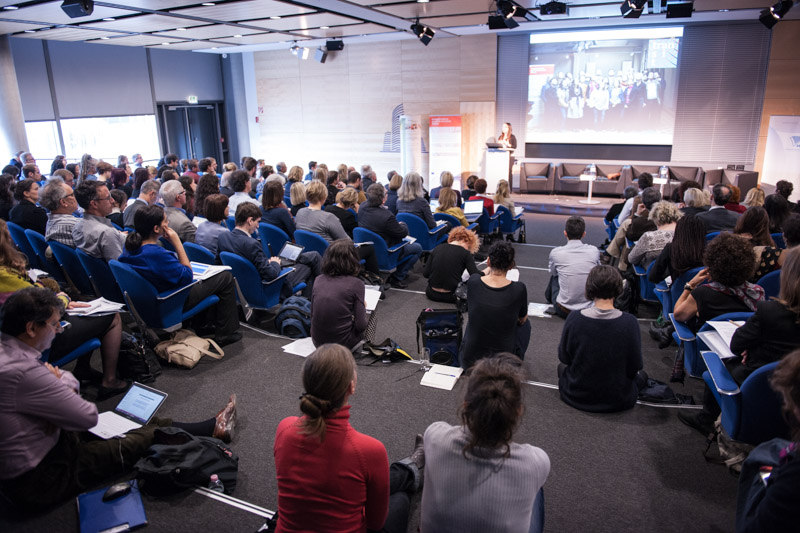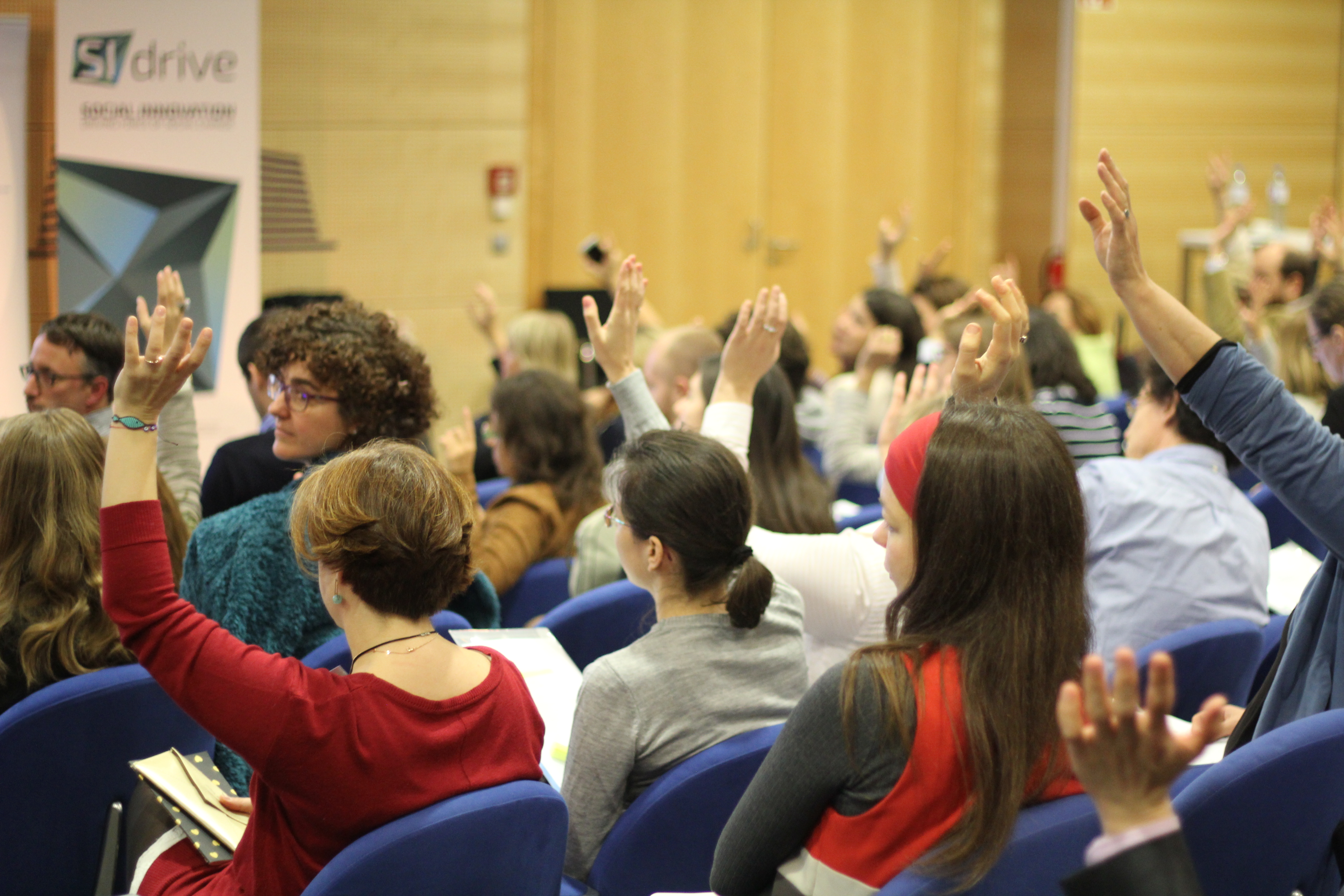The international partner projects TRANSIT and SI-DRIVE successfully co-organized this year’s key event on social innovation: ‘Social Innovation 2015: Pathways to Social Change. Research, policies and practices in European and global perspectives’ which took place on 18th – 19th November in Vienna, Austria. Over 300 social innovators, policymakers, and researchers gathered from around the world for workshops, meetings and a brokerage event to share insights on social innovation and its role in fostering social change.
Transformative social innovation challenges existing institutions
Dr. Flor Avelino, one of the scientific coordinators of TRANSIT, shared the Midterm-insights of TRANSIT in a keynote speech. One of her main messages was that transformative social innovation is about challenging existing institutions. Across the world, there are transnational networks, globally connected and locally active, working on social innovations that (aim to) challenge existing systems. TRANSIT researches twenty of these networks, and has published already on twelve networks. You can find more Midterm-insights in her key-note speech (PDF).

A full room during the keynote speech Dr. Flor Avelino (picture by ZSI – Centre for Social Innovation).
Two days filled with identifying challenges and innovative approaches in social innovation
The first day of the conference focused on the state-of-the-art in social innovation research and offered participants the opportunity to take part in various interactive sessions. TRANSIT hosted several sessions ‘Beyond ‘scaling up’: spatial perspectives on social innovation’, ‘Innovating research? Approaches and methods in social innovation research’, ‘Theories of change in sustainability transitions: the role of agency’, ‘Narrative of change and social innovation’ and ‘New directions in theory on social innovation and (transformative) social change’.
The second day was dedicated to practical challenges in social innovation. TRANSIT offered diverse sessions on ‘Systemic play to change the game’, Facilitation skills in social innovation’ and ‘Trojan horses in social innovation: Dealing with disempowerment, unintended consequences and dilemmas’ and ‘Central & Eastern European Features of Social Innovation’. A full list of TRANSIT-conference sessions is published on the website.
Gilda Farrel, former Head of the Division on Social Cohesion Research and Early Warning at the Council of Europe, on the social innovation and the political dimension of change (picture by Kristina Izmailova; used under Creative Commons).
‘A great opportunity to bring together many different disciplines and so many different world regions’
This conference brought together policy-makers and researchers from all over the world with high level representatives of the Austrian government and European Union in various plenaries, keynote speeches, commentaries and sessions.
Julia Wittmayer, scientific coordinator of TRANSIT:
This conference was a great opportunity to meet people interested in social innovation from different backgrounds. What we share is the interest in the potential of social innovations to build a better world and what makes discussions interesting is the different perspectives we take on this: as researchers from different disciplines, as activists or practitioners and as policy makers. It remains a challenge to organize a conference that makes critical, thought-provoking and productive interactions possible and I think that Vienna offered many of these.

The audience voting in the conference room (picture by Kristina Izmailova; used under Creative Commons).
Partners
The conference was hosted by two research projects under the EU 7th Framework Programme: (1) “Social Innovation – Driving Force of Social Change” (SI-DRIVE) and (2) “Transformative Social Innovation Theory” (TRANSIT), and by NET4SOCIETY, a network of National Contact Points in Horizon 2020. Two other projects - “Creating Economic Space for Social Innovation” (CRESSI) and “Boosting the Impact of Social Innovation in Europe through Economic Underpinnings” (SIMPACT) were collaborative partners in the organization.
This press release is available for download.
Stay informed. Subscribe for project updates by e-mail.